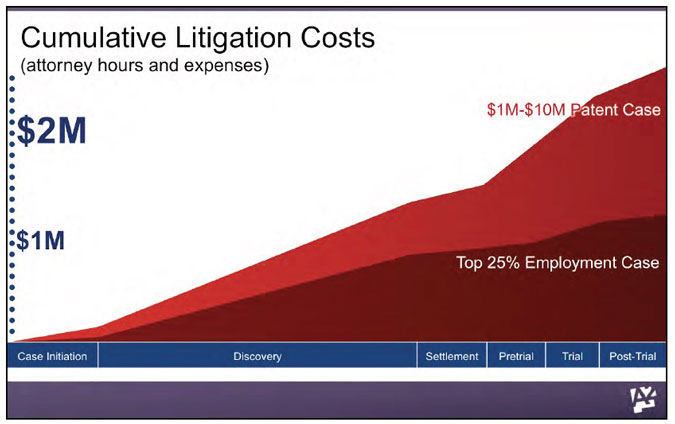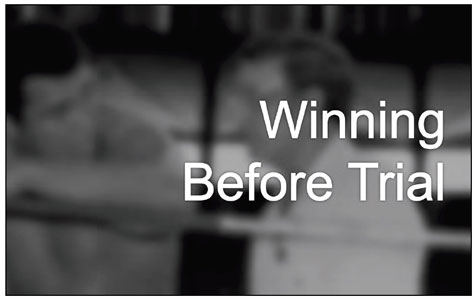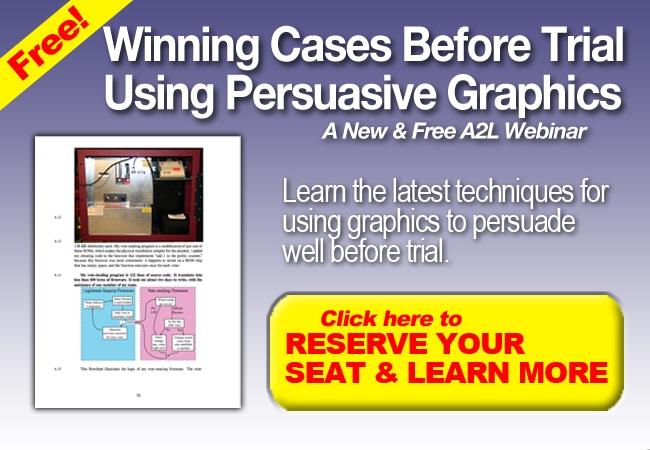by Ryan H. Flax
(Former) Managing Director, Litigation Consulting and General Counsel
A2L Consulting
High-stakes litigation is hugely expensive these days. But what if there were a means of reducing litigation costs in a way that helps both the trial team and the client and doesn’t sacrifice the quality of legal representation? That would make in-house counsel very happy, since an important part of their job is to budget and control litigation costs. There are a number of ways to do this, such as using alternative fee arrangements, streamlining litigation teams and bringing e-discovery in house.
But what about a more radical step – trying to win your case well before trial? That would indeed be a cost saver and would lead to an excellent result.
Let’s first look at how expensive this type of litigation can be. A piece of employment litigation that is in the top 25 percent of costs (but not in the top one percent or anything like that), costs close to $1 million by the end of discovery – and that’s before closing arguments. And the costs are mostly borne by the defendant.Or consider a typical patent infringement case – say, one that involves possible damages of $1 million to $10 million. This kind of case usually ends up costing more than twice as much as that employment case. By the time discovery is over in the patent case, you’re well past the $1 million mark in costs. Other types of cases – antitrust, environmental, contract cases and the like – are not quite as expensive, but costs add up there too.

But it doesn’t have to work out that way. There are quite a few ways of winning a case without a trial.
First, we all know about dispositive motions – motions to dismiss, summary judgment motions, motions related to venue and jurisdiction, and the like. These can end a case before trial, but after the filing of a brief and usually an oral argument.
Second, a Markman hearing is a special type of proceeding in a patent case in which the court hears argument (and sometimes some expert testimony) and decides what the patented invention actually is by interpreting the patent claims and resolving disputes over claim language.
Third, a pre-indictment meeting is one that takes place when your client is under investigation by the government and you would reasonably expect charges to be presented against it. This usually involves an attempt by counsel to persuade the government to drop a case before it begins.
Finally, we all know about mediation, arbitration and settlement.
All of these are out-of-court occasions in which lawyers have a chance to argue their clients’ cases before trial. They can happen in lieu of a trial or just before a possible trial.
What do all of these have in common? They are all opportunities, before trial, to begin winning your case by using the best practices of case framing and persuasion. If you can raise your game in these situations, if you can persuade the court or opposing counsel or the opposing party or a mediator or the opposition’s star witness that you’re a winner, how much better off would you be?
In our next post, we will discuss more about these best practices and how they can help you win. To be notified when subsequent articles are published, click here.
Additional articles and resources focused on pre-trial strategy and trial preparation from A2L Consulting:
- 14 Places Your Colleagues Are Using Persuasive Graphics (That Maybe You're Not)
- [New Webinar] Winning Cases BEFORE Trial Using Persuasive Graphics
- 4 Tips for Using Trial Graphics in Motions and Briefs
- Learn How to Get Value in The New Normal Legal Economy
- 24 Things to Know About The "New Normal" of The Legal Economy
- 9 Things In-House Counsel Say About Outside Litigation Counsel
- Repelling the Reptile Trial Strategy as Defense Counsel - Part 4 - 7 Reasons the Tactic Still Works
- With So Few Trials, Where Do You Find Trial Experience Now?
- How Long Before Trial Should I Begin Preparing My Trial Graphics?
- 7 Questions Will Save You Money with Litigation Graphics Consultants
- 9 Ways Prepping for Trial is Like Being a Dad of Triplets
- 11 Tips for Winning at Your Markman Hearings
- Making Good Use of Trial Director & Demonstratives in an Arbitration
- 11 Surprising Areas Where We Are Using Mock Exercises and Testing
* Chart data is based on 2013 Court Statistics Project Caseload Highlights, RAND Institute for Civil Justice “Where the Money Goes, Understanding Litigant Expenditures for Producing Electronic Discovery” (2012) and 2013 AIPLA data.






Leave a Comment